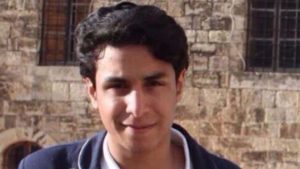
The Iranian authorities must halt the imminent execution of alleged juvenile offender, Amnesty International said today.
According to unconfirmed reports, Mosleh Zamani is due to be executed tomorrow morning in Dizel Abad Prison, in Kermanshah Province, along with other unidentified prisoners. In 2006, he was sentenced to death for allegedly raping his girlfriend when he was 17.
“Only weeks after the execution of Behnoud Shojaee on 11 October, it appears that the Iranian authorities are yet again preparing to kill someone accused of committing a crime when under the age of 18,” said Philip Luther, Deputy Director of Amnesty International’s Middle East and North Africa Programme.
Iran is a state party to the International Covenant on Civil and Political Rights (ICCPR) and the Convention on the Rights of the Child (CRC). Both of these prohibit the use of the death penalty against juvenile offenders, people under 18 at the time of the offence of which they have been convicted.
“We appeal to the Head of the Judiciary to immediately issue an order to stay this execution and to take the necessary steps to ensure that Mosleh Zamani‘s death sentence is overturned.”
Amnesty International has been told that 200 people have been demonstrating in front of the Dizel Abad Prison today to protest against tomorrow’s executions.
Iran is one of very few countries in the world that still executes juvenile offenders – people convicted of crimes committed before they were 18.
Background
Mosleh Zamani was sentenced to death in 2006. According to Amnesty International’s information, he was convicted of abducting a woman several years older than him, with whom he was allegedly having a relationship, and raping her. His death sentence was confirmed by the Supreme Court in July 2007. He may not have had adequate legal representation.
According to Amnesty International’s information, Mosleh Zamani was transferred to solitary confinement on 11 December, but his execution was not carried out for medical reasons. Amnesty International has also learnt that Mosleh Zamani’s alleged victim has asked that his life be spared, stating that they had consensual sex, but that the Appeal Court judge refused to take that into consideration, stating instead that he should be executed in order to “set an example” to other young Iranians.
In many cases, juvenile offenders under sentence of death in Iran are kept in prison until they pass their 18th birthday before their executions are scheduled. In this period, some win appeals against their conviction. Some have their sentence overturned on appeal and are freed after a retrial. Some are reprieved by the family of the victim in cases of murder and are asked to pay diyeh (compensation) instead. Some are executed.
Source: Amnesty International



